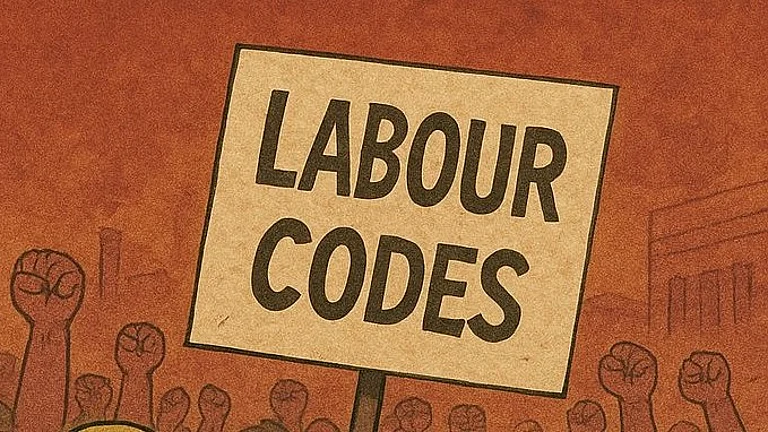There is a long and important debate in the social sciences on whether economics primarily shapes culture or if it’s the other way around. Karl Marx favoured economics. At the risk of caricaturing, for him it was the organization of production that, to a first approximation, determined the culture: feudal production went with a feudal culture, full of rituals and hierarchies; capitalist production created a more transactional cultural style. On the other hand, Max Weber, another great German thinker from later in the nineteenth century, was convinced that it was the culture which came out of Protestantism – with its focus on frugality and accumulation of wealth – that led to capitalism.
It is easy to see why this matters. If culture is no constraint and capitalism comes naturally to everyone, then it is only policies that are in our way to the wonders of free-market capitalism. Marx (it is worth emphasizing, given his reputation) believed that the dynamic force of capitalism must sweep away the vestiges of feudal economics before the glorious march towards socialism can really begin. This is why some free-market economists from the University of Chicago used to call themselves right-wing Marxists (they just didn’t want the final step), and why Marxist parties use the word ‘feudal’ in a particularly pejorative way.
On the other hand, if culture has a certain primacy over economics, the possibilities for radical transformation might be more limited. Unless you have the right set of social norms, it could be harder to successfully implement capitalism.
Both views have their devotees among social scientists. On the one side, there is the fact that most market-driven growth successes are concentrated in Europe, the Anglo-Saxon countries outside Europe (US, Canada, etc.) and East Asia. It is possible to see this as evidence of the advantages of certain cultures, though those more sceptical point to the fact that the ‘right’ culture is no longer just Protestantism. At some point, to fit the data, Weber’s theory had to be extended to include all of Christianity, Judaism and Confucianism. Will Hinduism be next, notwithstanding the cliché of it being other-worldly? Moreover, while South Korea is now often cited as a shining example of a Confucian success story, in the 1960s, there was a lot of anxiety – in Korea and beyond it – about the same Confucianism, and its emphasis on high thinking and scholarly pursuits rather than manual labour and business creation.
This smells like one of those deep but ultimately unanswerable questions, and certainly not one to be resolved between the covers of this thin book. On the other hand, the context of food and eating practices offers a very natural space to discuss the mechanisms through which economics shapes culture and vice versa. For example, it is hard to think of the difference between Chitpavan Brahmin food and Goan food from a few hundred kilometres down the Malabar coast without bringing in caste and religion – in other words, culture. On the other hand, the US’s exceptionalism in food – the fact it has the potential to grow great produce and yet has famously bad food, unlike most other such fertile places (like Italy, France, China, India) – is unlikely to be just culture. The bad Boston pizzas are made by immigrants from the pizza paradise of Naples. The piece titled ‘Foodscapes and Landscapes’ argues that it is economics, resulting from the particular combination of US’s geography and the historical patterns of immigration, to be blamed.
Trade and immigration are, of course, very powerful forces shaping diets everywhere. Potatoes came from the new world and remade Polish and Punjabi food. Tomatoes did the same for Italy. Hakka immigrants from China started a process that gave us Chineej food (see ‘One Chineej, Many Chinas’) and a similar accident gave Egypt it’s so-called national dish, koshari (see ‘The Nostalgia Diet’). The English imperialists left, but their cake stayed behind with us – one slightly savoury exception in the pantheon of ultra-sweet Indian desserts, totally indigenized and sold across the country (see ‘The Paradox of Cake’).
Immigrants also adjust their diets to their new homes, albeit slowly. Food nostalgia is a powerful example of cultural resistance to economic pressures – people buy the foods that they grew up with even when they cost more, as my MIT colleague David Atkin’s research shows (discussed in ‘Landscapes and Foodscapes’).
If economics changes culture, cultural and social practices undergird the economy; there is now a growing emphasis within economics on the role of social networks in making possible a range of economic transactions, from supply chains to credit to mutual insurance. We need to trust people and we need them to trust us for most economic exchanges to happen. My own research suggests, however, that these networks are not necessarily products of some economic engineering: we thankfully don’t make friends only because they will serve some economic function, or pick our family because they offer some economic advantages. We are, with prominent exceptions, first human and then economic agents. Therefore, it is the way we are brought up, the way we relate to people and the way we collectively react to what, within our culture, is seen as egregiously selfish and/or amoral conduct, which make certain transactions possible and others not. ‘Trust and Trade’ discusses the hundi system of financial transfers that has linked the rest of the world to India for many centuries, and the role of trust in it.

Bookmarked
Take a look at what’s new in the business section of Amazon’s bookshelf
Family and Dhanda: A to Z of Succession Planning for Founders and Successors
Srinath Sridharan
Published: March 2025
Crafted specifically for India’s cultural and business landscape, this book is a guide for every family business looking to thrive across generations.
Atypical: Five Strategy Rules for a New World
Prateek Raj
Published: February 2025
This book shows how the world’s most innovative organisations learn from voices at the fringes including marginalised communities and frontline workers. Through actionable frameworks, it provides a blueprint for leaders who wish to nurture an inclusive future.
The Storypreneur’s Playbook
Nitin Babel and Prateek Roy Chowdhury
Published: May 2025
It draws from the experience of fifteen successful entrepreneurs in the domains of technology, travel, media, entertainment and social impact to provide readers with the tools needed to take the entrepreneurial leap of faith.
People Powered Startups
Saurabh Nigam
Published: February 2025
With case studies of some of the largest brands, the author provides real-world solutions to address human resource management challenges.












